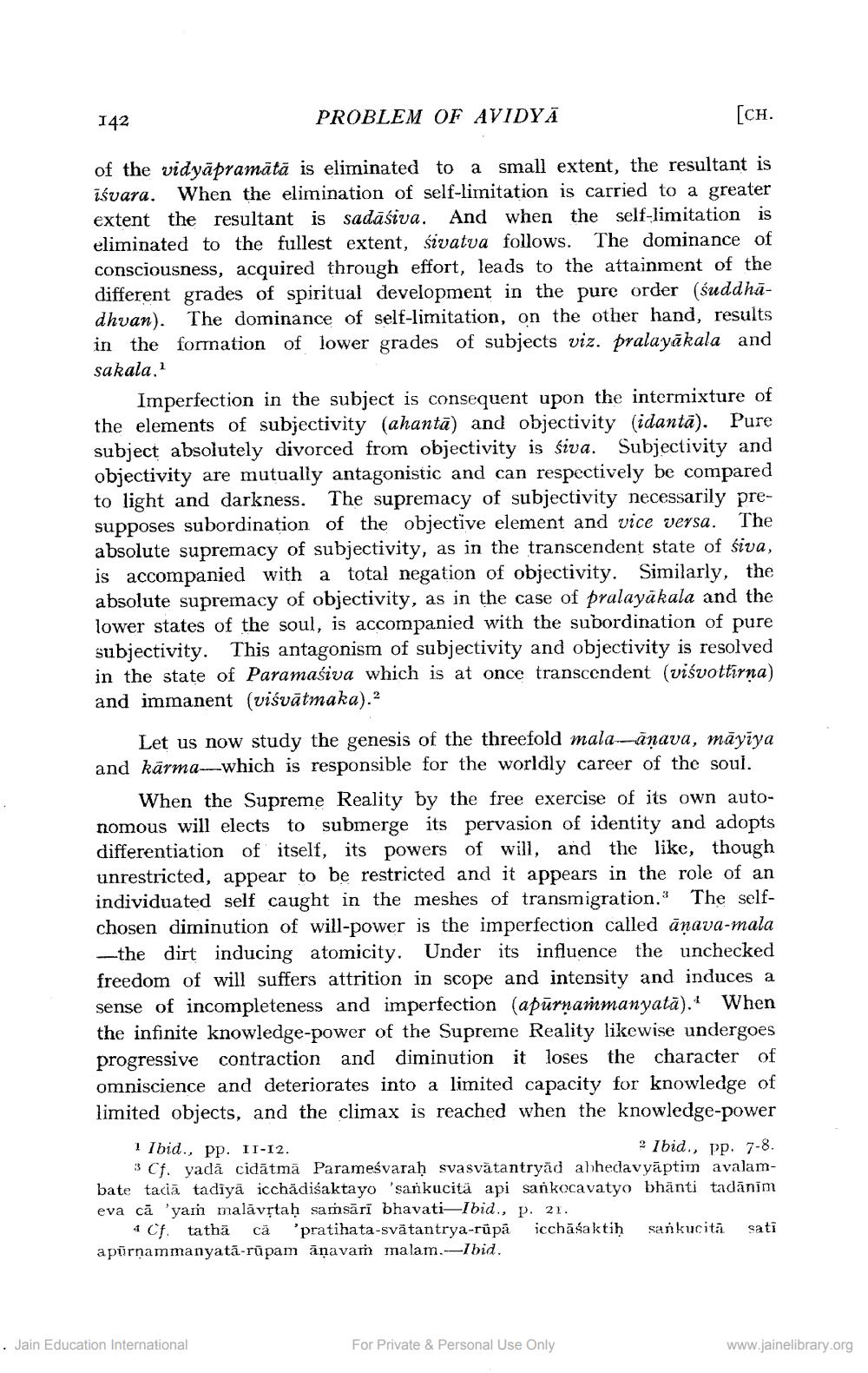________________
[CH.
iśvara.
of the vidyapramätä is eliminated to a small extent, the resultant is When the elimination of self-limitation is carried to a greater extent the resultant is sadasiva. And when the self-limitation is eliminated to the fullest extent, sivatva follows. The dominance of consciousness, acquired through effort, leads to the attainment of the different grades of spiritual development in the pure order (suddhadhvan). The dominance of self-limitation, on the other hand, results in the formation of lower grades of subjects viz. pralayakala and sakala,1
142
PROBLEM OF AVIDYA
Imperfection in the subject is consequent upon the intermixture of the elements of subjectivity (ahanta) and objectivity (idanta). Pure subject absolutely divorced from objectivity is siva. Subjectivity and objectivity are mutually antagonistic and can respectively be compared to light and darkness. The supremacy of subjectivity necessarily preThe supposes subordination of the objective element and vice versa. absolute supremacy of subjectivity, as in the transcendent state of siva, is accompanied with a total negation of objectivity. Similarly, the absolute supremacy of objectivity, as in the case of pralayakala and the lower states of the soul, is accompanied with the subordination of pure subjectivity. This antagonism of subjectivity and objectivity is resolved in the state of Paramasiva which is at once transcendent (viśvottirna) and immanent (viśvātmaka).2
Let us now study the genesis of the threefold mala-aṇava, mayiya and karma-which is responsible for the worldly career of the soul.
When the Supreme Reality by the free exercise of its own autonomous will elects to submerge its pervasion of identity and adopts differentiation of itself, its powers of will, and the like, though unrestricted, appear to be restricted and it appears in the role of an individuated self caught in the meshes of transmigration." The selfchosen diminution of will-power is the imperfection called aṇava-mala -the dirt inducing atomicity. Under its influence the unchecked freedom of will suffers attrition in scope and intensity and induces a sense of incompleteness and imperfection (apūrṇammanyata). When the infinite knowledge-power of the Supreme Reality likewise undergoes progressive contraction and diminution it loses the character of omniscience and deteriorates into a limited capacity for knowledge of limited objects, and the climax is reached when the knowledge-power 2 Ibid., pp. 7-8.
1 Ibid., pp. 11-12.
3 Cf. yada cidātmā Parameśvaraḥ svasvätantryād abhedavyaptim avalambate tada tadiyä icchädiśaktayo 'sankucitä api sankocavatyo bhanti tadānim eva că 'yam malavṛtaḥ samsārī bhavati-Ibid., p. 21.
4 Cf. tatha că 'pratihata-svātantrya-rūpā icchāśaktiḥ sankucită sati apūrṇammanyata-rupam aṇavam malam.--Ibid.
. Jain Education International
For Private & Personal Use Only
www.jainelibrary.org




